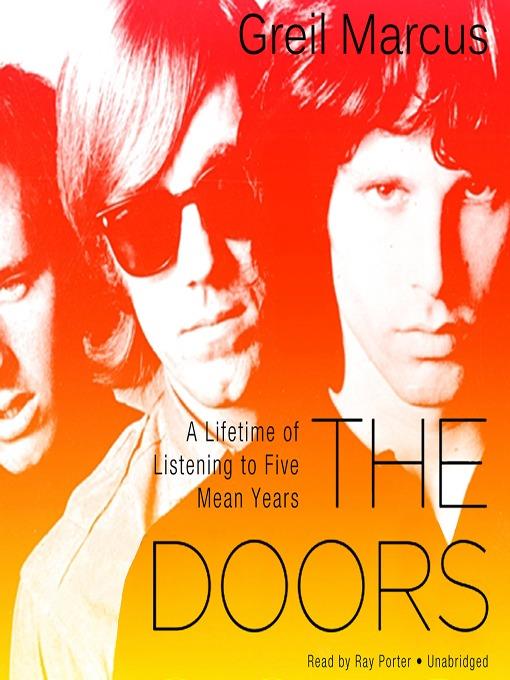
The Doors
A Lifetime of Listening to Five Wild Years
- اطلاعات
- نقد و بررسی
- دیدگاه کاربران
نقد و بررسی

Rock's top scholar, Greil Marcus, is a free-association master who effortlessly draws parallels between the most arcane cultural manifestations and their populist underpinnings. Narrator Ray Porter astutely grasps Marcus's snide qualities, delivering a performance resonant with a tone of righteous scorn--a trademark of the author's writing since his days at ROLLING STONE and NEW WEST. It's forceful material, and Porter embodies the weight of Marcus's convictions perfectly. Given the author's penchant for intellectualization, the Doors, with their heady brew of death visions and chaos theory, and their straddling of the cultural divide between the '60s and the contemporary world--not to mention singer Jim Morrison's cult appeal--prove to be the perfect fodder for the author's active imagination as well as Porter's dramatic mastery. J.S.H. (c) AudioFile 2012, Portland, Maine

Starred review from August 29, 2011
Music critic Marcus (Bob Dylan by Greil Marcus) offers a relentlessly beautiful and insightful evaluation of the music of the Doors—a fitting tribute on the occasion of the 40th anniversary of Morrison’s death in 1971—but also a complete rethinking of the Doors’ work as an entire story that captures the 1960s as “a place, even as it is created, people know they can never really inhabit, and never escape.” He begins with the band’s first album, The Doors, and offers a tribute to the power of the work as a whole, especially the lengthy and much-maligned “The End,” to make “everything seems tentative, uncertain, unclear: that’s the source of the song’s power, it’s all-encompassing embrace of darkness, doom and dread.” He argues that the band’s second album, Strange Days, perfectly captured the end of the 1960s ideals: “Already in 1968 the Doors were performing not freedom but its disappearance.” And he contrasts a fascinating range of official and bootleg live recordings of such hit singles as “Touch Me” to show that by 1970 “a war between the band and its audience was underway, a war whose weapons were contempt on both sides.” This is an impressive tribute to “the revolt the Doors momentarily embodied, and acted out,” as well as to Jim Morrison’s artistic attempt to move beyond the hatred he felt for the band’s pop success.




دیدگاه کاربران